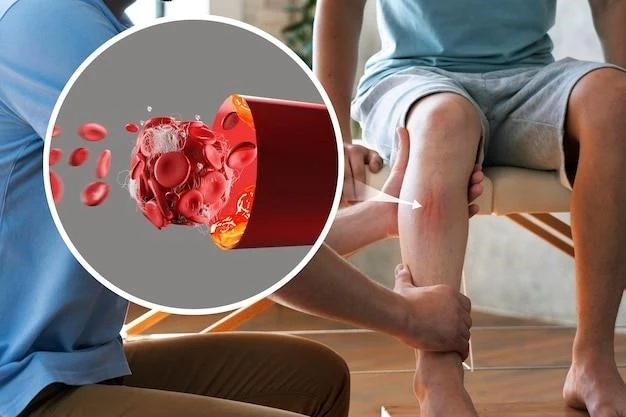Causes of Acrodermatitis
Understanding the causes is crucial. Consult a dermatologist to identify triggers and develop a personalized treatment plan.
Overview of Acrodermatitis Causes
Acrodermatitis has various triggers, including infections, nutritional deficiencies, and genetic factors. Seek medical advice for a comprehensive evaluation to determine the precise cause of your condition. Avoid self-diagnosis and adhere to professional guidance for effective treatment.
Symptoms and Diagnosis of Acrodermatitis
Early signs may include skin rash, itching, and redness. Promptly consult a dermatologist for accurate diagnosis and treatment.
Common Symptoms of Acrodermatitis
Identifying symptoms like skin lesions, blisters, and swelling is key. Contact a healthcare professional promptly for a thorough evaluation and accurate diagnosis to initiate the appropriate treatment plan. Self-diagnosis can lead to delays in managing the condition effectively.
Diagnostic Procedures for Acrodermatitis
Diagnostic tests like skin biopsies, blood work, and allergy tests may be necessary for accurate diagnosis. Complete these tests under the guidance of a healthcare professional to determine the underlying cause of your condition. Avoid delaying the diagnostic process for prompt treatment.

Treatment Options for Acrodermatitis
Effective treatments include topical creams, oral medications, and phototherapy. Consult a dermatologist for personalized care.
Medical Treatments for Acrodermatitis
Prescribed treatments may include corticosteroids, immunosuppressants, and antihistamines. Follow your dermatologist’s guidance closely for optimal results and symptom management. Communicate any concerns promptly during your treatment journey for adjustments, if needed.
Home Remedies and Self-Care Practices
Home remedies like oatmeal baths, cold compresses, and moisturizing creams can provide relief. Additionally, practicing stress-reducing techniques and maintaining a healthy lifestyle may support your overall well-being. Consult with your dermatologist before trying any self-care practices to ensure they complement your treatment plan.
Prevention of Acrodermatitis
Avoid triggers like harsh chemicals and maintain a healthy skincare routine. Consult a dermatologist for personalized prevention strategies.
Lifestyle Changes for Preventing Acrodermatitis
Implementing a skincare routine, wearing protective clothing, and avoiding allergens are vital lifestyle changes; Consult with a dermatologist for personalized advice on maintaining healthy skin and preventing acrodermatitis flare-ups. Consistent adherence to these lifestyle modifications can significantly impact the condition’s progression and severity.
Other Preventive Measures
In addition to skincare habits, consider lifestyle modifications like stress management and avoiding known triggers. Follow a holistic approach with the guidance of a healthcare provider to minimize the risk of acrodermatitis. Incorporating preventive measures into your daily routine can enhance your overall skin health and well-being.
Acrodermatitis in Children
Timely diagnosis and treatment are crucial. Consult a pediatric dermatologist for specialized care tailored to your child’s needs.
Specific Symptoms in Children
Common signs in children may include redness, itching, and scaling of the skin. Promptly seek a pediatric dermatologist for precise evaluation and management. Early detection and intervention are key to effectively addressing acrodermatitis in children. Avoid delaying medical consultation to prevent potential complications.
Treatment Approaches for Pediatric Cases
For children, treatment options may include gentle skincare routines, topical creams, and oral medications prescribed by a pediatric dermatologist. Ensure regular follow-ups and adhere to the treatment plan for optimal management of acrodermatitis in pediatric cases. Collaborate closely with healthcare professionals to address your child’s specific needs and enhance their skin health.
Acrodermatitis⁚ Types and Variants
Learn about the different types to understand your condition better. Consult a dermatologist for accurate diagnosis and tailored treatment.
Different Types of Acrodermatitis
Acrodermatitis includes specific variants like acrodermatitis continua of Hallopeau and acrodermatitis enteropathica. Seek a dermatologist’s expertise to identify the type you may have and receive appropriate treatment. Understanding the nuances of each variant is crucial for effective management and symptom alleviation.
Understanding the Pathophysiology of Acrodermatitis
Explore the disease mechanisms for a comprehensive grasp. Discuss with medical professionals for detailed insights on the condition.
In-depth Explanation of the Disease Mechanisms
Delve into the intricate workings of acrodermatitis. Consult dermatologists or medical resources for a detailed understanding of the pathophysiology. This insight can aid in making informed decisions regarding treatment and management strategies. Stay informed to empower your health journey.
Lifestyle Tips for Managing Acrodermatitis
Adopt a gentle skincare routine and manage stress effectively. Consult healthcare professionals for personalized guidance.
Dietary Recommendations
Embrace a diet rich in fruits, vegetables, and omega-3 fatty acids. Stay hydrated and limit processed foods. Consult a nutritionist for personalized dietary advice to support skin health and overall well-being. Making mindful dietary choices can complement your treatment plan for managing acrodermatitis effectively.
Stress Management Techniques
Practice relaxation methods such as deep breathing, yoga, or meditation. Engage in hobbies and activities that bring joy. Seeking guidance from a mental health professional can also aid in stress reduction. Effective stress management plays a significant role in managing acrodermatitis and promoting overall mental and physical well-being.
